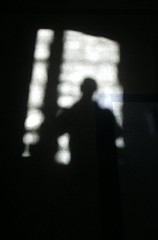Boil 2.08
There is frank talk of ‘preacherly drivel’ and a fine description of Queen Victoria as the ‘much-beloved though humourless dumpling of legend’. Another character enters ‘a condition a little displaced from what he’d always thought of as his right mind’. We hear of ‘long moon-stung waves’ and a ‘low tobacco-stricken voice’. There are many versions of the trope Pynchon so loved in V (‘sailors being, under frequently sentimental and swinish exteriors, sentimental swine’), the one that says disguise is no disguise. ‘Certain telltale nuances’, for example, give Russian spies away: ‘fur hats, huge unkempt beards, a tendency in the street to drop and begin dancing the kazatsky to music only they could hear’. An Indian researcher is evoked as a person who ‘didn’t say much, but when he did, nobody could figure out what he meant’. Pynchon even uses the biblical phrase ‘it came to pass’ as if it was just another narrative convenience, and in what I think is my favourite drop from the divine to the demotic, announces the arrival of a creature who is ‘the angel, if not of death at least of deep shit’.
Review of Against the Day


2 Comments:
hah, this just made my day (and it's just 5am). must note that last quote down.
(thanks)
doru, wusste nicht dass du so viel liest.
Post a Comment
<< Home